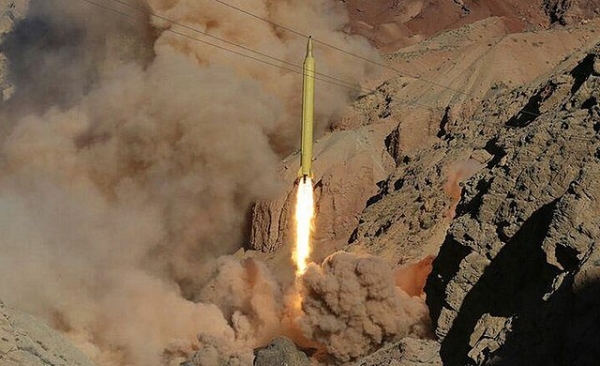محلل عسكري إسرائيلي يتنبأ بشكل الرد الإيراني ويستعرض "نقاط ضعف" طهران
العالم | 6 أغسطس, 2024 - 6:23 م

 تشييع رسمي وشعبي لاثنين من شهداء المنطقة العسكرية الاولى في مدينة مأرب
تشييع رسمي وشعبي لاثنين من شهداء المنطقة العسكرية الاولى في مدينة مأرب  صحيفة الجيش: خطاب الرئيس العليمي تأكيد أن السيادة خط أحمر ورفض توظيف الدعم الخارجي للفوضى
صحيفة الجيش: خطاب الرئيس العليمي تأكيد أن السيادة خط أحمر ورفض توظيف الدعم الخارجي للفوضى  محافظ حضرموت يحمل الإمارات مسؤولية الفوضى وأعمال النهب في مطار الريان
محافظ حضرموت يحمل الإمارات مسؤولية الفوضى وأعمال النهب في مطار الريان  الأوقاف تعلن تسهيلات استثنائية للراغبين في أداء مناسك الحج في مختلف المحافظات
الأوقاف تعلن تسهيلات استثنائية للراغبين في أداء مناسك الحج في مختلف المحافظات  مصدر سعودي: المتطلبات الأمنية لن تتحقق إلا بانسحاب قوات الانتقالي من حضرموت والمهرة
مصدر سعودي: المتطلبات الأمنية لن تتحقق إلا بانسحاب قوات الانتقالي من حضرموت والمهرة  نيويورك تايمز: كيف وصلت السعودية والإمارات إلى حد الصراع في اليمن؟
نيويورك تايمز: كيف وصلت السعودية والإمارات إلى حد الصراع في اليمن؟ 
 تشييع رسمي وشعبي لاثنين من شهداء المنطقة العسكرية الاولى في مدينة مأرب
تشييع رسمي وشعبي لاثنين من شهداء المنطقة العسكرية الاولى في مدينة مأرب  صحيفة الجيش: خطاب الرئيس العليمي تأكيد أن السيادة خط أحمر ورفض توظيف الدعم الخارجي للفوضى
صحيفة الجيش: خطاب الرئيس العليمي تأكيد أن السيادة خط أحمر ورفض توظيف الدعم الخارجي للفوضى  محافظ حضرموت يحمل الإمارات مسؤولية الفوضى وأعمال النهب في مطار الريان
محافظ حضرموت يحمل الإمارات مسؤولية الفوضى وأعمال النهب في مطار الريان  الأوقاف تعلن تسهيلات استثنائية للراغبين في أداء مناسك الحج في مختلف المحافظات
الأوقاف تعلن تسهيلات استثنائية للراغبين في أداء مناسك الحج في مختلف المحافظات  مصدر سعودي: المتطلبات الأمنية لن تتحقق إلا بانسحاب قوات الانتقالي من حضرموت والمهرة
مصدر سعودي: المتطلبات الأمنية لن تتحقق إلا بانسحاب قوات الانتقالي من حضرموت والمهرة  نيويورك تايمز: كيف وصلت السعودية والإمارات إلى حد الصراع في اليمن؟
نيويورك تايمز: كيف وصلت السعودية والإمارات إلى حد الصراع في اليمن؟ 
العالم | 6 أغسطس, 2024 - 6:23 م
